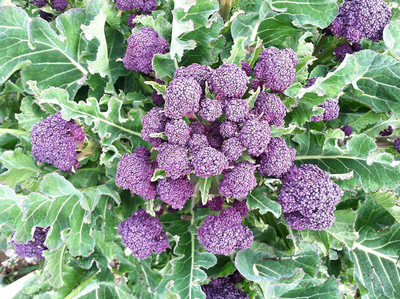VibeX Broccoli Seed(30 per packet)
Quick Overview
Product Price Comparison
The origin of this cool-climate crop dates back to 2000 years ago in Italy. It was initially native to the Eastern Mediterranean region and Asian minor. It was introduced to America and England in the 1700s. Broccoli is a man-made vegetable. It was bred by Italian farmers. They carefully bred wild varieties of wild cauliflower and came up with one of the most nutritious vegetables available today. It's literally a phytonutrient bomb! Indeed, broccoli is one of the highest sources of dietary fibres and proteins in the plant kingdom. Also, not commonly known but Broccoli is also one of the richest sources of Vitamin C, iron, zinc, selenium, calcium, and magnesium. The vegetable also adds high doses of Omega-3 fatty acids, niacin and Vitamin B1. With so many health benefits, Broccoli is now considered a power food by vegetarians and vegans around the world! Add it to your kitchen gardens to prepare a kick-starter of a meal everyday!GROWING GUIDE FOR BROCCOLI SEEDSPLANTING INSTRUCTIONSFor spring plantings, seed or set transplants 2 to 3 weeks before last spring frost date. If you transplant, calculate 10 less days for ripening or the ŌĆ£days to maturity.ŌĆØFor fall plantings, seed 85 to 100 days before your average first fall frost date. If you live in a warm place, a fall planting is best, as broccoli thrives in cool weather. Plant seeds in mid- to late-summer in most positions.Plant seeds ┬Į inch deep.Within a row, space your plants 12 to 24 inches apart with 36 inches between each row.You will need to thin seedlings to 12 inches apart to give room for the broccoli to fix.GROWING REQUIREMENTSWATERINGWater regularly, 1 to 1.5 litres of water per week.PESTSSymptoms may include slow growth, stunted plants; yellowish leaves, lesions which form concentric rings become brittle and crack in center, round or irregularly shaped gray necrotic lesions on leaves with dark margins. Common pests affecting broccoli are Flea Beetles, Aphids, Downy mildew, Cabbage loopers, Cabbage Worms, Cabbage root maggots,Whiteflies, Woodchucks.SOILThe soil pH should be between 6.0 and 7.0. The best soil type is sandy along with 2 to 4 inches of rich compost or a thin layer of manure before planting.SPOTBroccoli needs at least 6 hours of sunlight daily.TEMPERATUREBroccoli does best when temperature remains between 4-21 degree C (40-70 F).HOW TO HARVESTIn terms of timing: Harvest broccoli when the buds of the head are firm and stiff before the bloom heads. If you do see yellow petals, harvest immediately.For best taste, harvest in the morning before the earth heats up.Cut heads from the plant. Consuming at least 6 inches of stem.Cut the stalk of the chief head at a slant, about 5 to 8 inches below the head.Most varieties have side-shoots that will continue to evolve later on the main head is harvested.Store broccoli in the refrigerator for up to 5 days. Make sure to dry it thoroughly.Broccoli can be frozen for up to one year.


